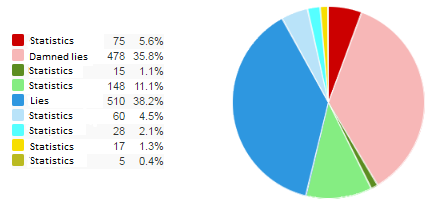Fiddling at 15th

It is always interesting to compare Canada with other countries. One intriguing fact is the number of times Canada ranks 15th in economic-related comparisons. Look at the table below:
Comparison | Canada’s rank |
Global Innovation Index | 15 |
Human Development Index | 15 |
Patent application by residents | 15 |
Percent of World Foreign Direct Investment | 15 |
GDP by PPP (2022) | 15 |
Index of economic freedom (Heritage Fdn.) | 15 |
World Happiness Index (2022) | 15 |
Rule of Law (World Bank) | 15 |
Legatum Infrastructure Pillar | 15 |
Some of these rankings are more significant than others, and remember to take each of them with a grain of salt — small changes in methodology can change the ranking markedly. Nor is it always good to have a high ranking, for instance when comparing the prevalence of terrorism and road accidents. With that in mind, consider some of these items in more detail.
Global Innovation Index. This index is put out by the World Intellectual Property Organization, which — by yet another coincidence — is now in its 15th year. Here innovation is defined according to the OECD’s Oslo Manual: “An innovation is a new or improved product or process (or combination thereof) that differs significantly from the unit’s previous products or processes and that has been made available to potential users (product) or brought into use by the unit (process).” Published biennially since 1992, the manual surveys OECD members on 81 metrics, covering innovation inputs and outputs, structured into seven pillars. Here Canada ranked 15th for institutions, although our country’s best ranking was for market sophistication (6thplace) and the worst was for infrastructure (30th).
Human Development Index. This measure has been prepared by the United Nations for more than 30 years. It was originally developed to emphasize that people and their capabilities — not just economic growth — should be the ultimate criteria for assessing a country’s development. Over many years in the 2000s, Canada ranked first in this assessment, but then the methodology changed. It now addresses health (longevity), income, and education. Canada’s place fell for two reasons: we calculate income in a different way, and our education standards appear to have fallen. The index’s education ranking is now based on adults’ average level of schooling, and the number of years of schooling children can expect to receive. Canada does not do well by the second measure. Children here can expect 16.4 years of schooling, compared with Finland (19.1 years) Sweden (19.4 years) and the UK (17.3 years).
Rule of Law. Assembled by the World Bank, this metric combined six aspects of a country’s governance, including accountability, political stability, regulatory quality, and control of corruption. Canada’s rating has remained consistent since 2000.
World Happiness Index. This Index, now in its 10th year, is written by a group of academics in Canada, the UK, and the US, including several from Simon Fraser University in British Columbia. Based on surveys and other indicators, such as social media analyses, in 146 countries, Finland regularly tops this least, while the latest ranking put Afghanistan last.
Near Misses. Canada just missed being 15th in the following areas:
- High-tech exports: 16 (just behind Switzerland)
- Agricultural land: 16
- GDP/capita: 16
- Percent of world exports: 14
- Corruption Perception Index: 13 (down 10 places since 2012, from 84/100 to 74/100)
- International Intellectual Property Index: 16
Meanwhile, Canada ranks first in the world by these measures:
- Most educated country 2023 (World Population Review)
- Best countries 2021 (US News and World Report)
- Most accepting country for immigrants 2020 (Gallup poll)
- Pension fund assets relative to GDP 2020 (The Global Economy)
Conclusion
Be mindful of the saying “there are lies, damn lies and statistics”, attributed to Benjamin Disraeli. Some of these rankings fall into the “statistics” category, particularly indexes that combine a number of measures using opaque algorithms. Small changes in the algorithm can cause large changes in rankings.
Nevertheless, it is not reassuring that Canada is ranked so low, so often, on so many indices. It is a reminder that economic growth, resulting in higher GDP per capita, is the basis for all our social programs and healthcare and should be a high priority for governments at all levels.
R$
| Organizations: | |
| People: | |
| Topics: |
Events For Leaders in
Science, Tech, Innovation, and Policy
Discuss and learn from those in the know at our virtual and in-person events.
See Upcoming Events
You have 0 free articles remaining.
Don't miss out - start your free trial today.
Start your FREE trial Already a member? Log in
By using this website, you agree to our use of cookies. We use cookies to provide you with a great experience and to help our website run effectively in accordance with our Privacy Policy and Terms of Service.





